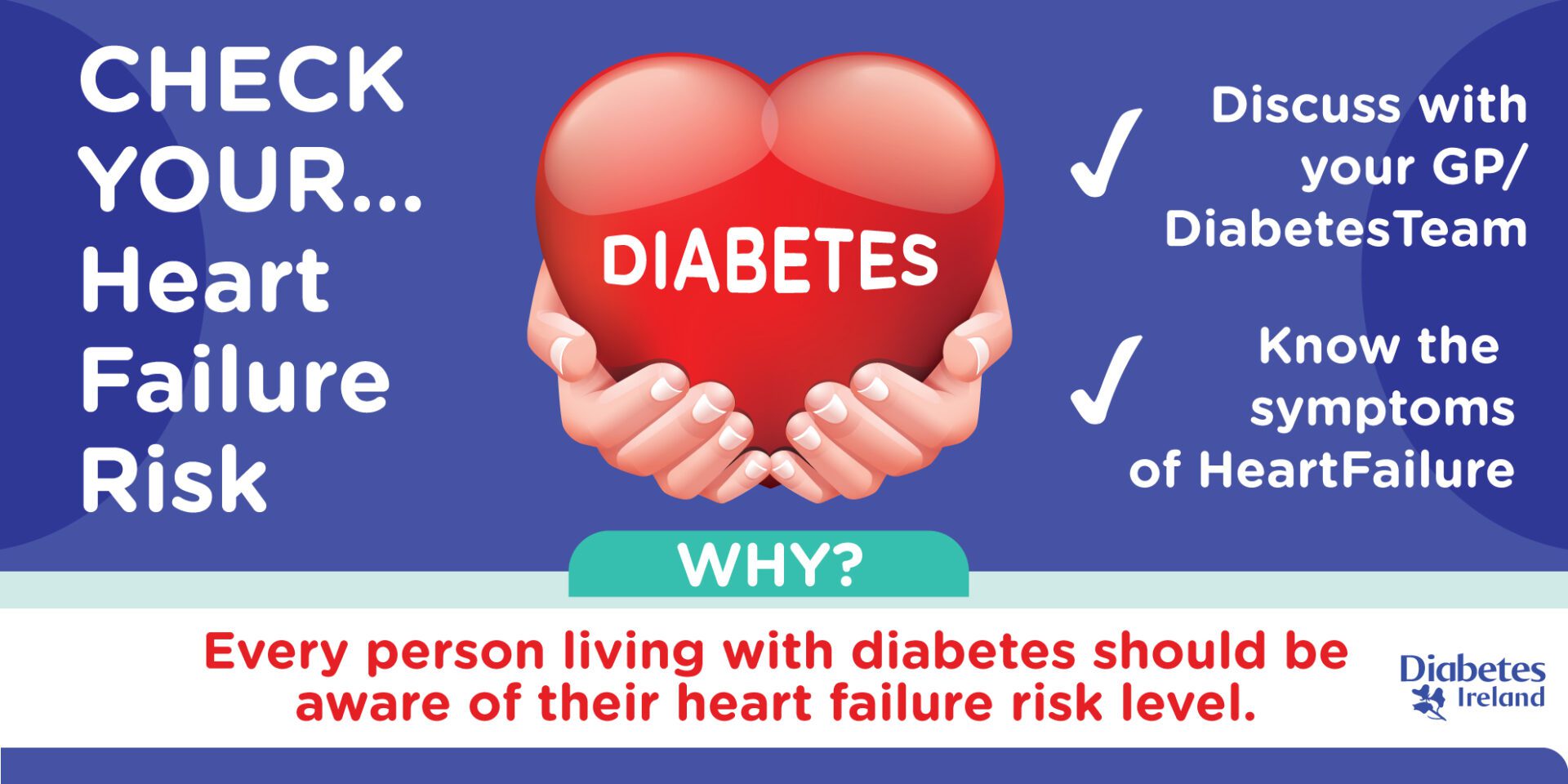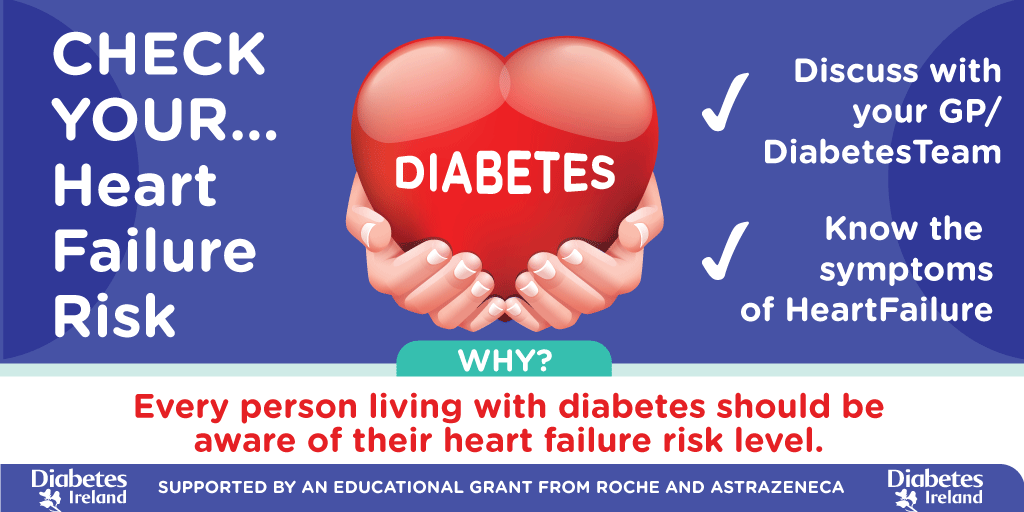
For people living with Type 1 and Type 2 diabetes, the prevalence of heart failure is 2- 4 times higher than in the general population. Diabetes is one of the primary causes of heart failure and people living with diabetes need to be mindful that heart failure can be a major complication of diabetes.
Every person living with diabetes should have their heart failure risk checked.
Knowing your risk of developing heart failure is important and now your GP/Diabetes team can check your risk level by doing a simple blood test, the B-Type Natriuretic Peptide (NTproBNP) test, which helps to recognise heart failure early, and enables you to take positive action to reduce your risk.
The NTproBNP blood test can be done as part of your Diabetes Review with your GP/Diabetes team.
What is Heart Failure?
Heart failure means that your heart is not working as efficiently as it should, it does not mean that your heart has stopped working, however, heart failure does mean that your heart doesn’t pump as much blood as the body normally needs to carry out its usual functions.
Knowing the Symptoms and Related Diabetes Risk Factors of Heart Failure is Important!

- Heart failure may develop slowly over time. You may notice a variety of symptoms. For example, you may become breathless on walking, or find you need an extra pillow at night because you feel breathless when lying flat.
- You may also notice swelling around your ankles which may increase over time. Other symptoms such as a poor appetite and low energy levels can be related to heart failure, but they are also associated with diabetes. Some people don’t have any of the common symptoms. In some instances, there is no obvious cause.
How is Heart Failure Diagnosed?
If you have any of the symptoms of heart failure, you should visit your doctor immediately. If you are diagnosed with heart failure, several things can be done to help you manage the condition and live a healthier life. The diagnosis of heart failure is based on questions your doctor will ask you, a physical examination, and medical tests that your doctor may recommend for you.
Discuss with your Doctor or Nurse
It is important that as part of your routine diabetes check-ups with your GP or Diabetes team, you discuss your heart failure risk and ensure you are taking all the necessary steps to help your heart remain as healthy as possible. If your GP/Diabetes Team deems your risk level to be high, don’t worry, medical treatment and lifestyle changes can be effective treatments. Your GP/Diabetes Team will discuss these with you.
Ways to help REDUCE YOUR RISK OF Heart Failure?
A healthy lifestyle is really important for managing diabetes and preventing/delaying the development of related complications such as heart failure. Some simple ways to do this are:
- Aim to keep HbA1c, blood pressure and cholesterol levels in the target range.
- Aim for a healthy weight and waistline.
- Include regular physical activity. Aim for 150 minutes weekly.
- Try Yoga or any type of exercise to help increase your strength and balance. Aim for twice weekly.
- Don’t smoke.
- Alcohol in moderation.
- Try to get a good night’s sleep.
- Reduce your stress levels.
- Have routine checks with your Diabetes team to monitor blood pressure, cholesterol, HbA1c, kidney function. urine, and relevant blood tests.
- Know your results and discuss these with your doctor or nurse.
To download the Check Your Heart Failure Risk Infographic, click here.
Living Well with Diabetes
For more information on Living Well with Type 1 and Type 2 Diabetes, visit:
- For Type 1 Diabetes: https://www.diabetes.ie/wp-content/uploads/2020/09/DiabetesType1A5_JULY_2020_web-version.pdf
- For Type 2 Diabetes: https://www.diabetes.ie/wp-content/uploads/2014/11/Living-Well-eith-Type-2-with-updated-Pyramid-June-2017.pdf
For Additional Information
For more information on heart failure click here.
There is a lot of information to help and support you. For more information on heart disease visit: www.croí.ie



